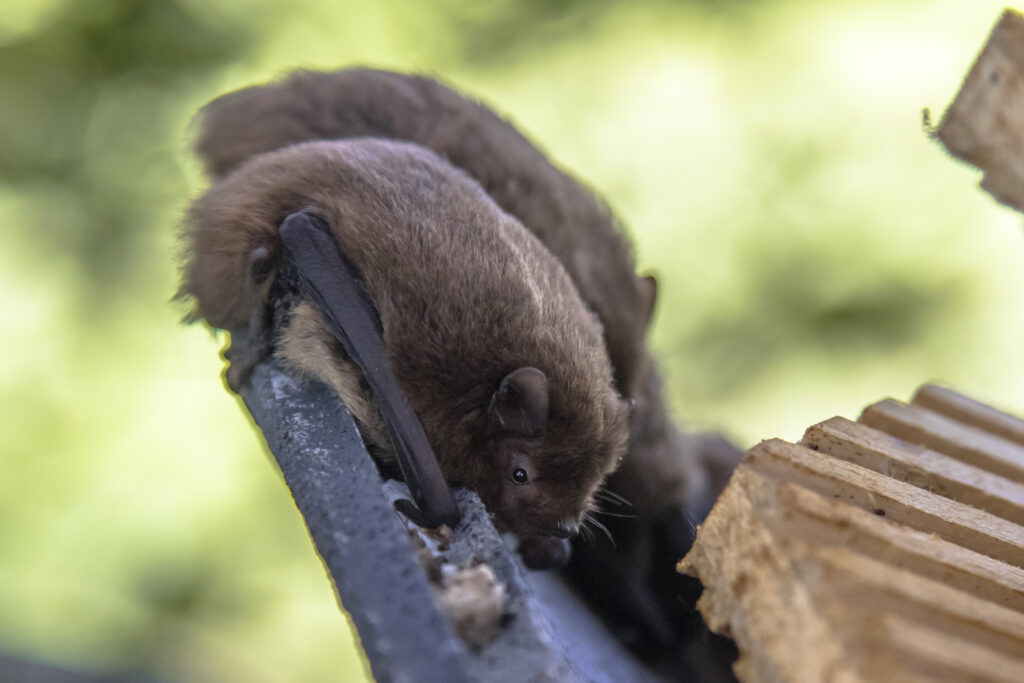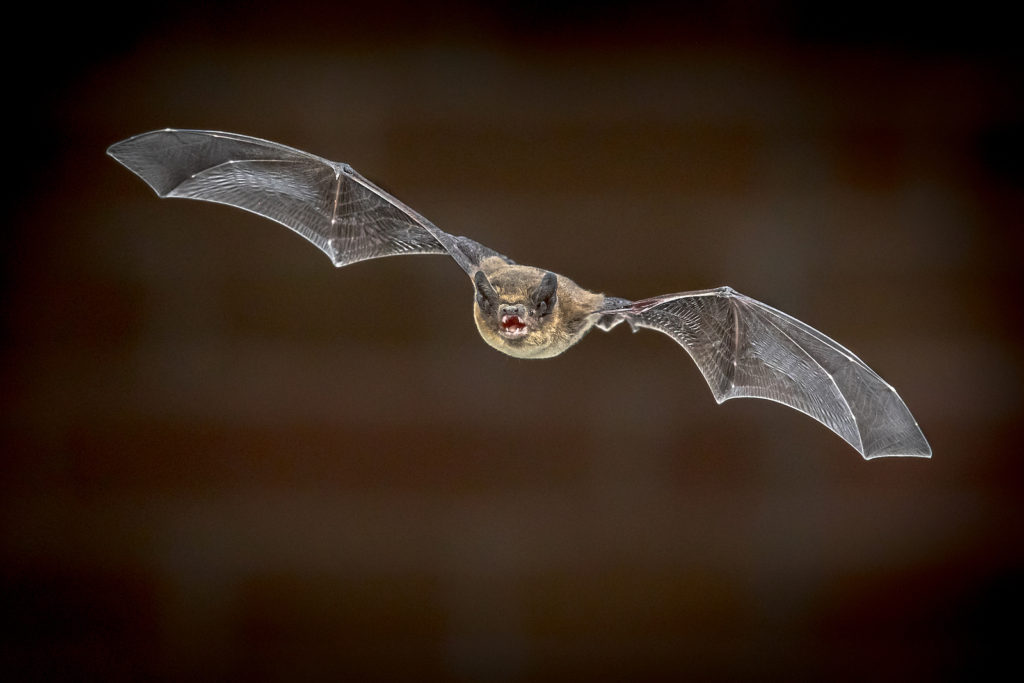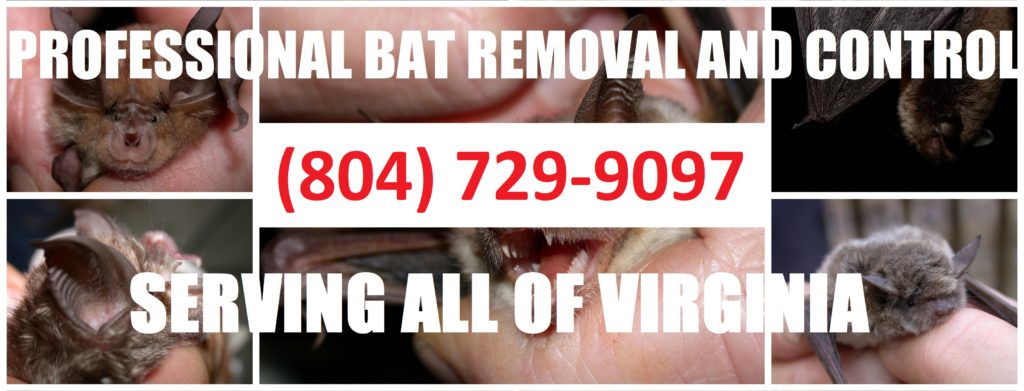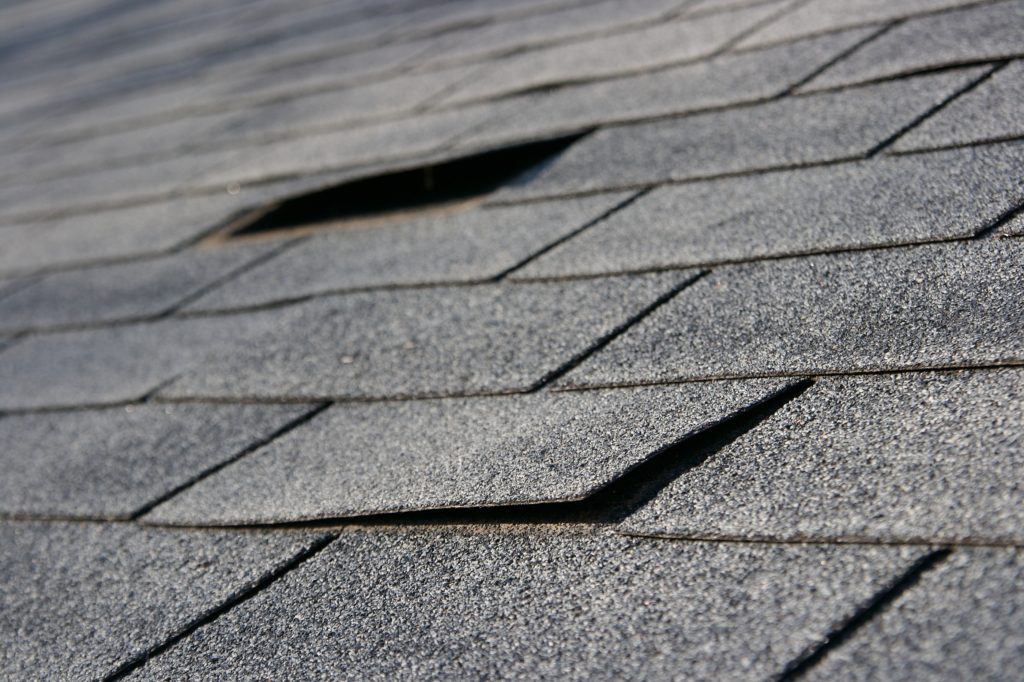Bats are an incredible species of mammal, and we are lucky to have them as a part of our surrounding Eco-system. Their high metabolic needs and diverse diets significantly impact our ecological communities by playing a vital role in pollination, seed dispersion, crop fertilization, insect control, protozoan hosting, ecotourism industries, and more. But where there are advantages, there are also disadvantages. If you have spotted bats around your property on a nightly basis, it is essential to better understand their behaviors so that you can better protect your home or business from bat damages and associated risks.
Continue reading to learn what you need to know about bats if you have them around your property.

Nuisance Bats
Bats are common nuisances for home and business owners. They are attracted to dark, warm shelters to raise their young and hibernate through winter, including attics, crawl spaces, garages, sheds, roofs, and walls. They can enter through a crevice as tiny as 3/8th inch, so it is easy for them to get inside a vulnerable structure. You can tell if you have bats in the house or around your property by looking for the signs. This includes hearing strange noises in the walls or attic at night, spotting animal droppings around windows or doors, smelling foul odors from attic or crawl space areas, and more.
Bat Damages
Bats can cause a long list of structural damages to a home, and the accumulation of their droppings can create an unsanitary, biohazardous environment. Furthermore, they pose a wide range of health risks since their guano can cause respiratory illnesses, and they may carry diseases and parasites like rabies, lice, mites, and more. Fortunately, several professional wildlife control companies offer restoration and decontamination services for damages caused by bats. They will remove the bats from the space using safe and humane methods, clean up the mess they made, sanitize the entire area, and restore any structural damages they caused from their stay.
Bats and Rabies
Many people wrongly assume that all bats have rabies. The truth is that bats are common carriers of the rabies virus, but that does not mean all bats are carriers, nor does it mean that carriers are infected. If a bat is rabid, you will be able to tell by a blood test, which can only be done correctly by a state’s Department of Health. A rabid bat is not likely to be a threat since they generally seek out isolation to die. In fact, bats that are not sick are not likely to attack either. They are more afraid of us than we are of them. It is very rare for one to bite or attack unless provoked. This is why regular vaccinations are so vital for pets.
Bat Removal and Control
To properly eliminate a bat problem, bats must first be removed, and then specific precautions must be taken to ensure they cannot reenter your home or building. There are many things you can do yourself to reduce the level of wildlife activity around your property, such as removing all food and water sources, including bird baths, squirrel feeders, pet food, gardens, and more. You can also install automatic motion lighting or ultrasonic sound machines, as well as, spread predatory urine or other non-toxic repellents around your yard. Just use water, ground hot pepper, and menthol oil to make a homemade bat repellent.
Are you dealing with a nuisance bat problem in or around your property? Contact Virginia Bat Pros at 804-729-9097 for prompt and professional bat removal and control you can afford. We serve residential and commercial clients.
Related Posts:
What You Need to Know About the Department of Health and Bats
Will Bats Attack My Dog?
How Much Does Bat Removal and Control Cost?






